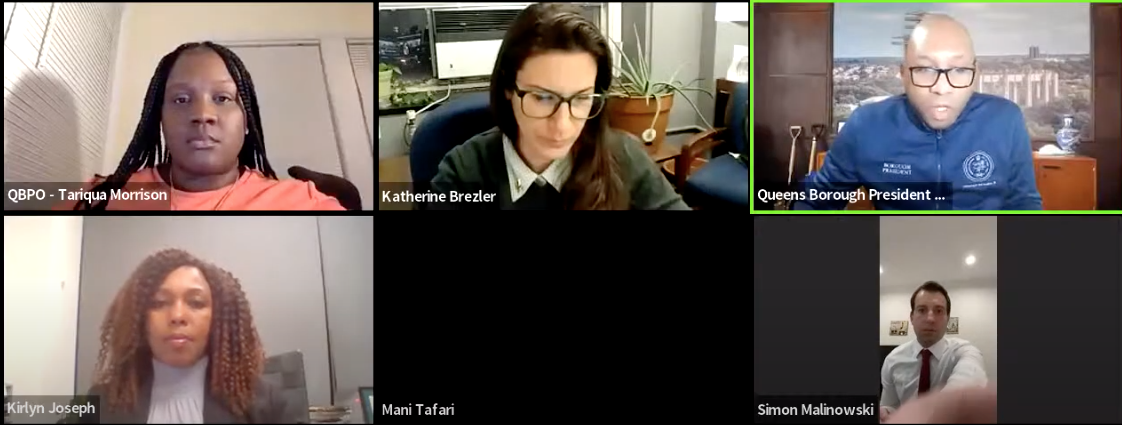Queens BP hosts talk on cannabis legalization
/The Queens borough president’s office hosted an information session on the legalization of cannabis. Screenshot via YouTube
By Rachel Vick
The Queens borough president’s office hosted a webinar Tuesday featuring members of Queens Defenders and the law firm Harris Bricken for a conversation about the Marijuana Regulation and the Taxation Act and expungement.
Borough President Donovan Richards said the MRTA, signed into law last March to legalize recreational marijuana, “will change the landscape of the New York economy and put the state on a path to restorative justice.”
“For far too long marijuana has been a barrier to employment, housing and education for individuals in communities already suffering from inequality,” he said. “Even as we see this industry emerging in New York State, we want to make sure our communities [are not just for] for contact, we want some contracts.”
He committed to ensuring affected communities are first in line for licenses because they “don't want to see this industry gentrified, and folks not as harmed taking the lead on this.”
Simon Malinowski, an attorney with Harris Bricken's New York office with a specialty in cannabis law, explained that while the general picture of New York’s recreational cannabis is taking shape, the specifics about licensing and regulations remain “a little bit murky.”
The Cannabis Control Board has been tasked with drafting rules and regulations to implement the MRTA and the Office of Cannabis Management will act as the equivalent to, and within, the State Liquor Authority to administer the rules and issue licenses.
Though potential marijuna business owners will need to submit an application to their local community board, Malinowski said the advisory bodies cannot prevent applicants from getting one just by saying they're not in favor — a concern for potential businesses “where there are… obviously CB that are less in favor of the industry.”
“To build an industry from scratch requires a lot of regulation,” he said. “We're still waiting to learn more information on the specifics of the process.”
What is clear, however, is the ban on vertical integration — one company controlling all stages from growth to retail — to avoid large companies establishing monopoly. Applicants will only be able to apply for one license for one stage of the process.
Opportunities include a license to become a cultivator; processor, distributor and to open a dispensary or space for onsite consumption, which are separate. Each stage of the process must take place within the state, and applicants from communities most severely impacted by the criminalization of marijuana will have priority.
“So far it really does appear that New York is taking the social and economic equity program seriously because it's something that has been enacted in a number of different states but not always with success,” Malinowski said.
Advocates who worked to ensure the legislation passed were adamant about the inclusion of automatic expungement for individuals facing time and suffering from the stigma long associated with a criminal record for a now-legal drug.
Kirlyn Joseph, director of special projects for the Queens Defenders, explained that local district attorneys have gone through their databases to flag eligible records, and that they have until March 2023 to officially clear the names.
“New York was waiting a long time to get expungement, to try and make people whole so they can pursue bis opportunities like those presented in MRTA,” she said.




